TRADITIONAL HALVAS
Halva, also known as halva or haluva, is a sweet, dense confection that is popular in various forms across many cultures. It has a unique texture that can range from crumbly to fudge-like, and it comes in a variety of flavors. Halawa has cultural and religious significance in various parts of the world. It is often served during special occasions and celebrations, such as religious holidays. In some cultures, it is considered a symbol of hospitality and is offered to guests.
INGREDIENTS
SUGAR
Sweeteners like sugar are used to sweeten the confection, making it distinctly sweet.
FLAVOURINGS
Halawa can be flavoured with a variety of ingredients, such as vanilla, cocoa, pistachios, almonds. These ingredients add flavor and texture to the halawa.
TAHINI
Ground sesame seed paste is a common base for halawa. Tahini gives halawa its signature nutty flavor and smooth texture.



CHOCOLATE HALVA
Cocoa powder or chocolate is added to the tahini and sugar mixture, creating a rich, chocolaty halawa.
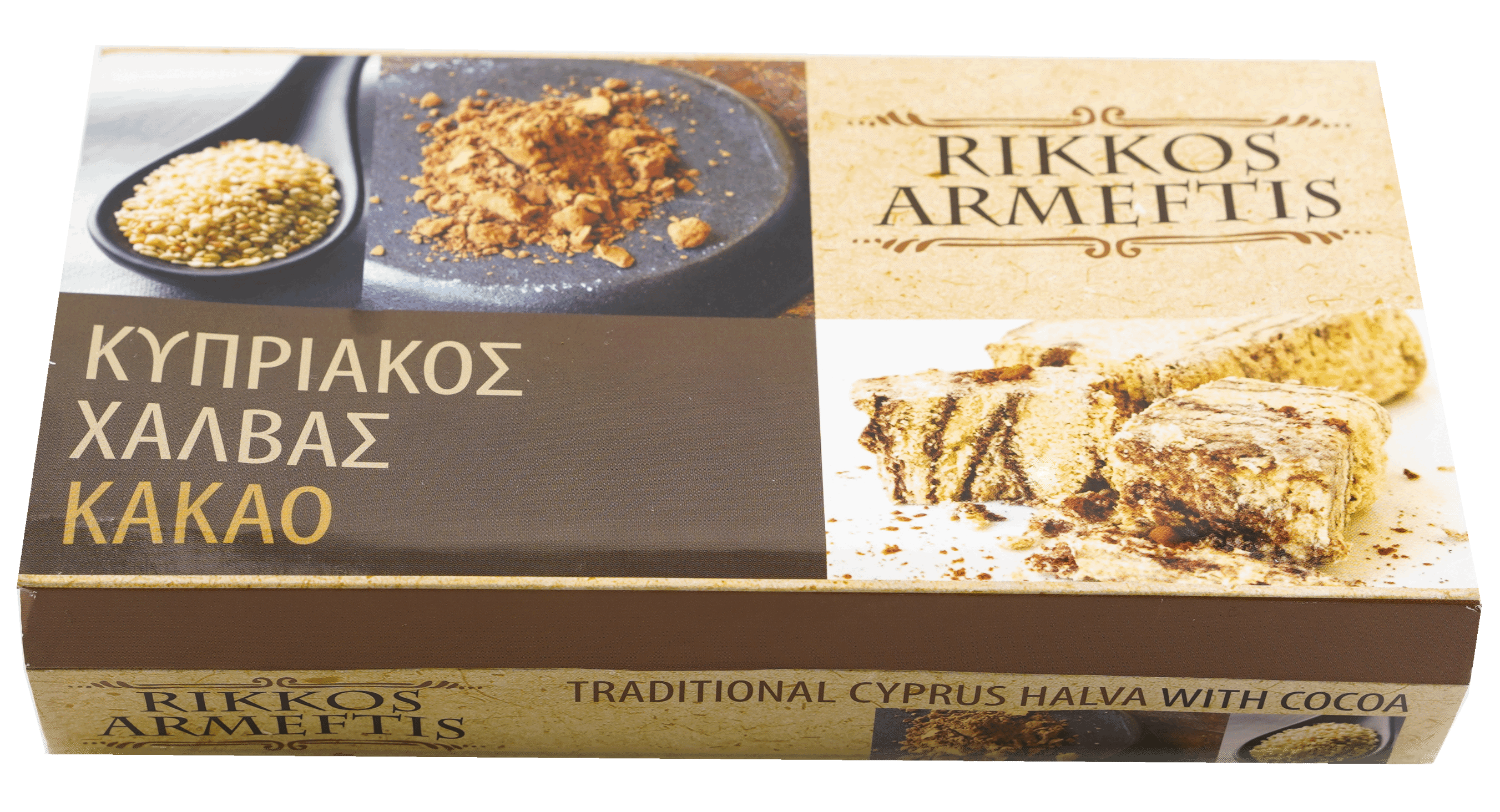
PISTACHIO HALVA
This version incorporates crushed pistachios, which give it a delightful crunch and a mild pistachio flavor.
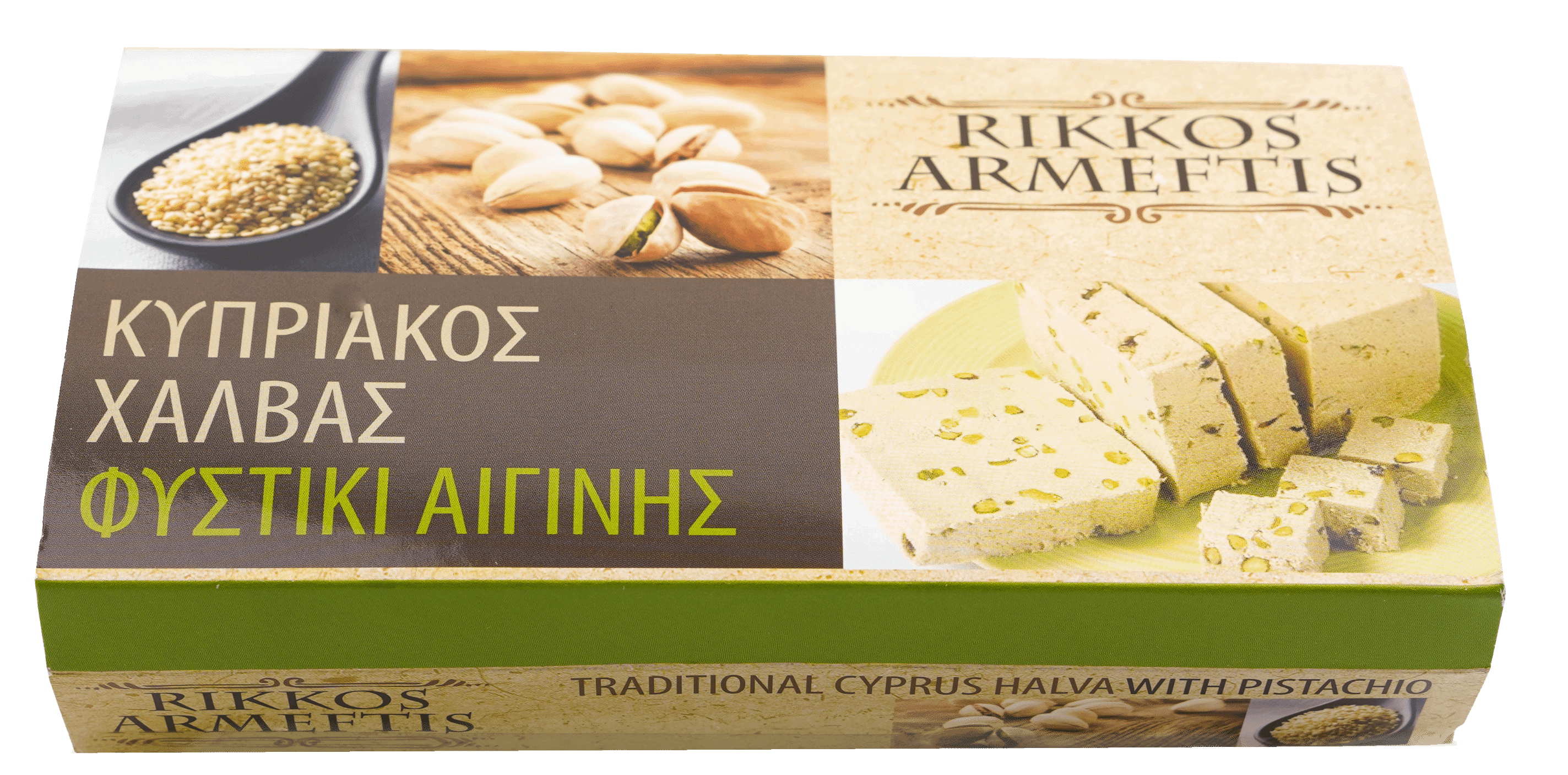
ALMOND HALVA
Similar to pistachio halawa but made with almonds instead, offering a different nutty flavor.
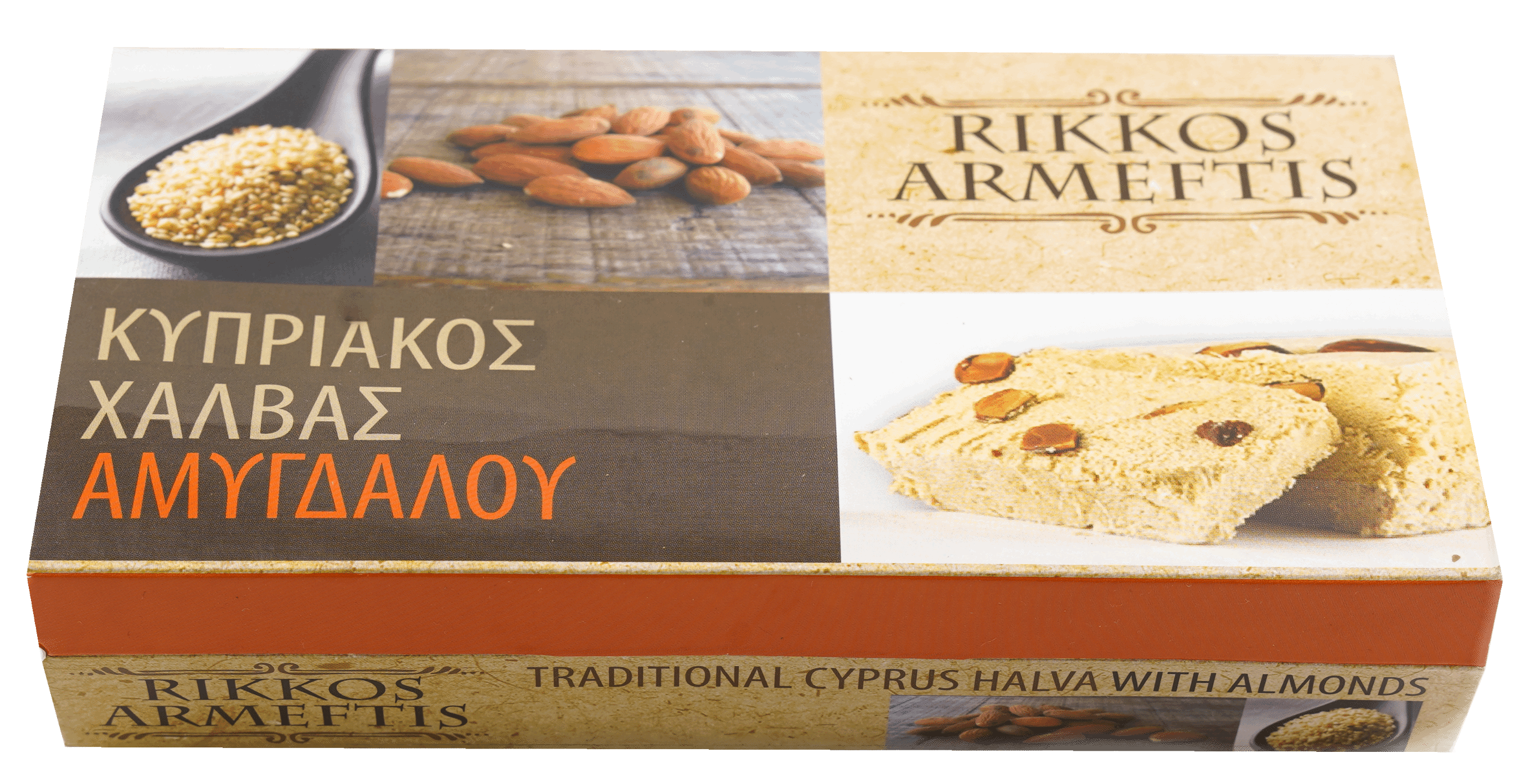
PLAIN VANILIA HALVA
The most basic form, made with tahini and sugar, offering a simple vanila, nutty sweetness.
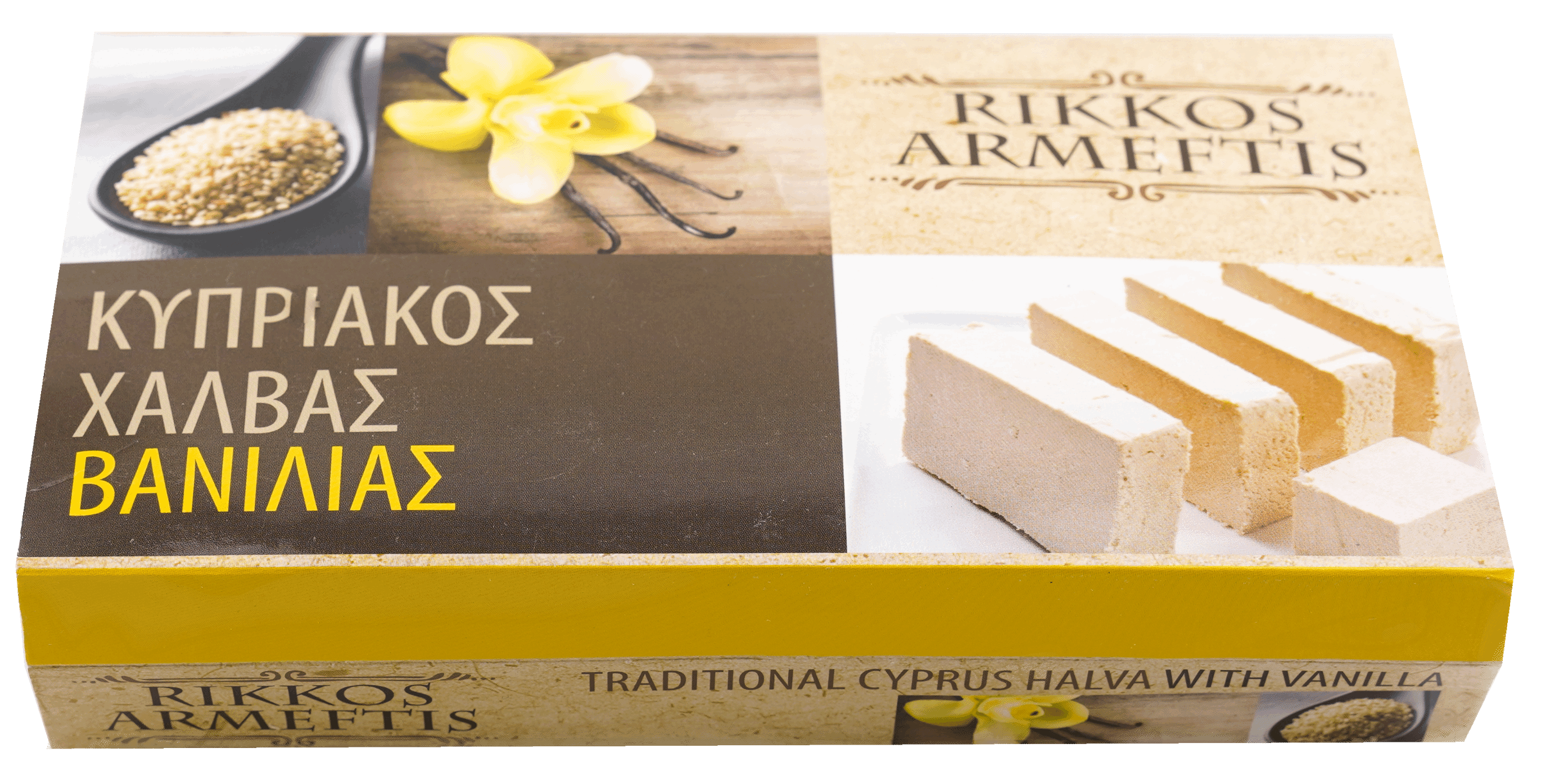
PEANUT HALVA
Peanuts and no sugar. A delightful twist on a classic treat. This version of halva combines the nutty richness of peanuts with a touch of natural sweetness from ingredients like honey or dates, making it a guilt-free indulgence for those seeking a healthier option.
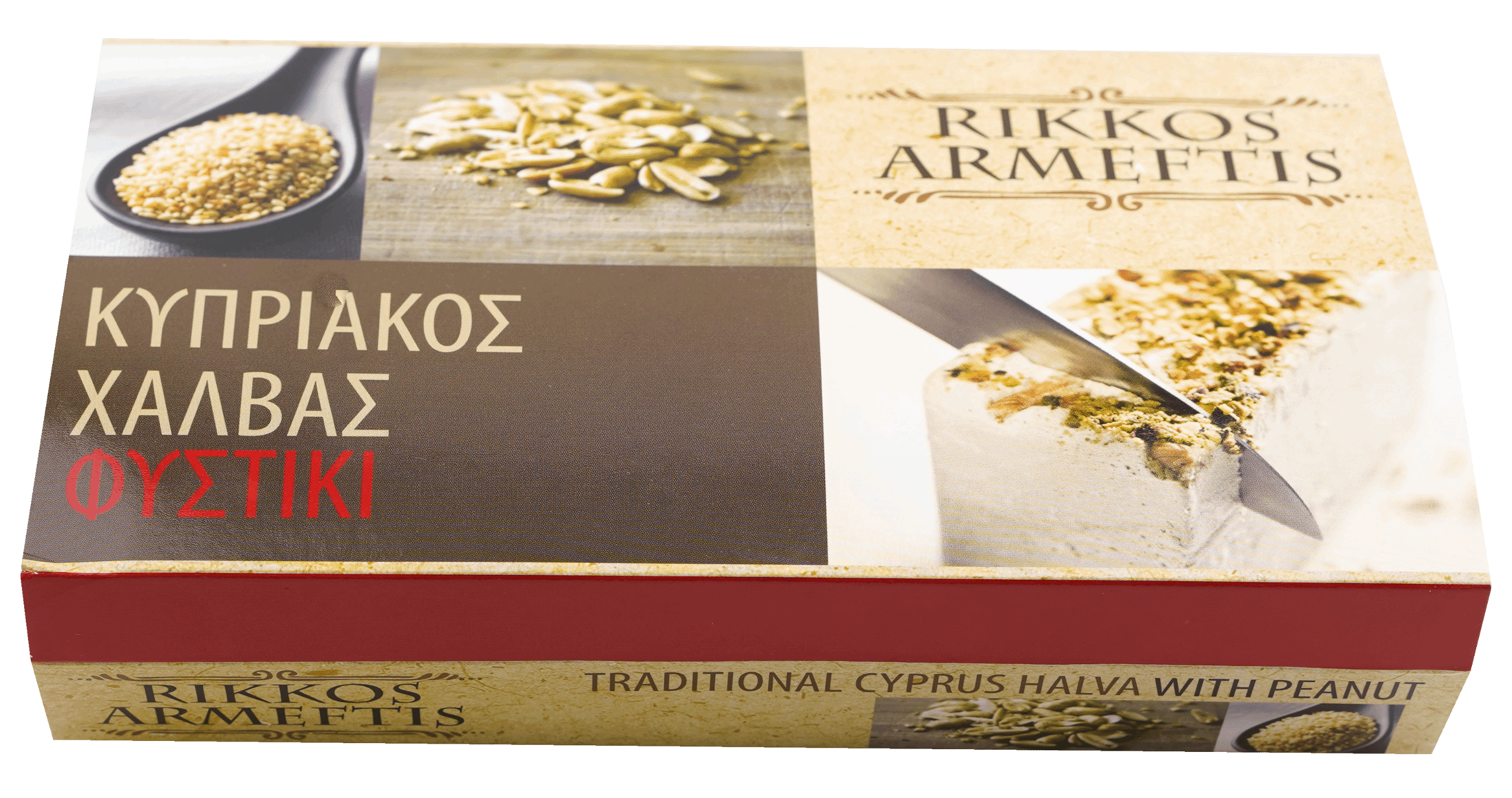
PACKING OPTIONS

Of 12
400gr PER
PIECE

Of 4
2.5kg PER
PIECE
USAGE
Halawa can be enjoyed in various ways, including:
o Sliced and eaten as a sweet treat.
o Spread on bread or toast, similar to nut butter.
o Used as a filling for pastries or desserts.
o Added to ice cream or yogurt for flavour and texture.
Overall, halawa is a versatile and delicious sweet treat that is appreciated for its unique texture and flavor variations. It is a beloved confection that has a place in the culinary traditions of many cultures around the world.
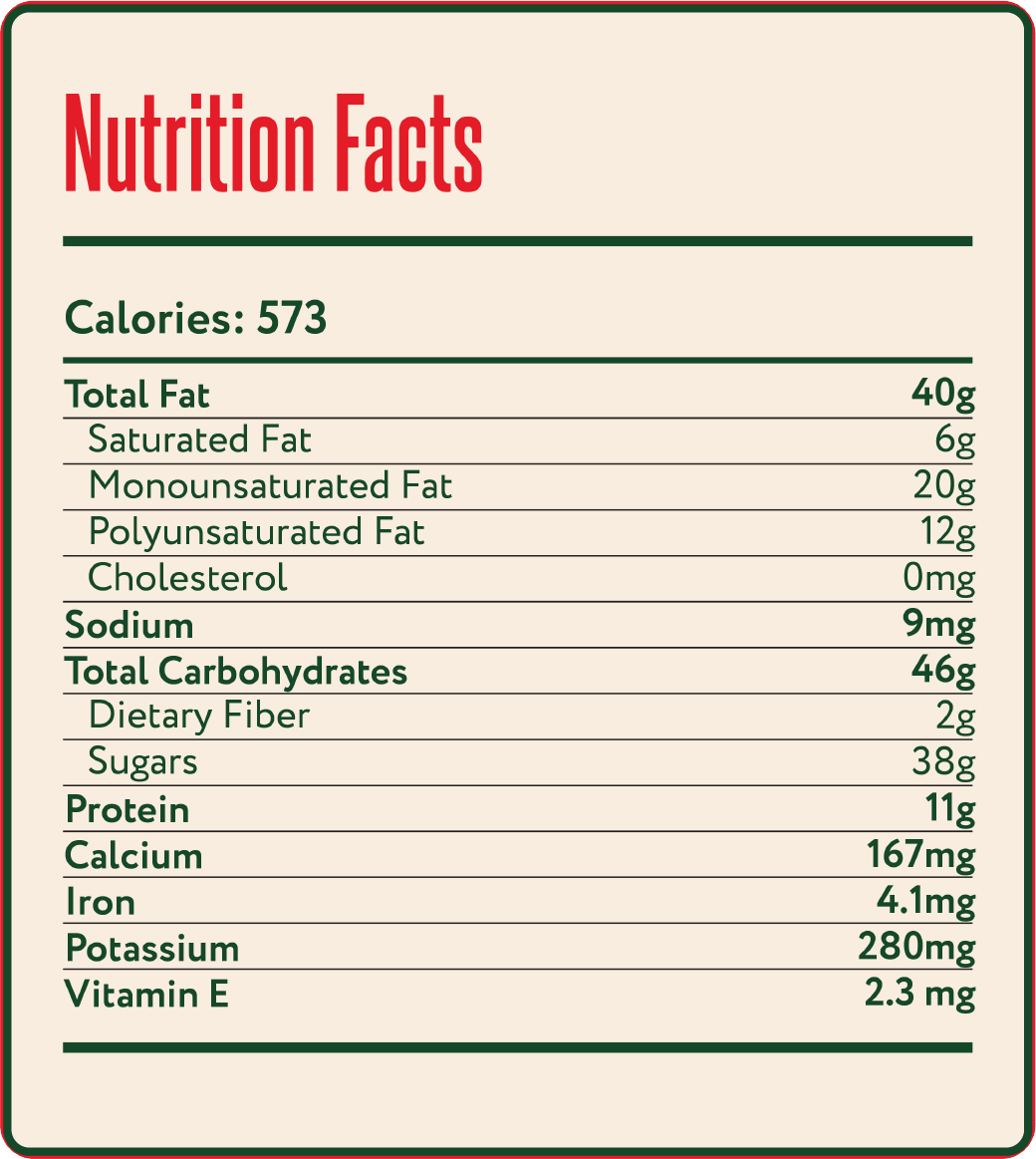
Here's a general nutrition chart for tahini halawa (halva) made with tahini, sugar, and flavourings per 100 grams:
The actual nutritional content of halawa can vary based on the specific recipe, the proportions of ingredients used, and any added flavourings or nuts. It’s always a good idea to check the packaging or nutritional label if you have a commercially produced halawa product, as the nutritional values can differ between brands. The calorie count is relatively high due to the significant fat and sugar content in halawa. While it can be enjoyed in moderation as a sweet treat, it’s important to be mindful of portion sizes, especially if you are watching your calorie intake or have dietary restrictions. Additionally, the type of sweetener used (sugar or honey or stevia) can impact the overall nutritional profile of the halawa.alawa(Halva or Haluva)
